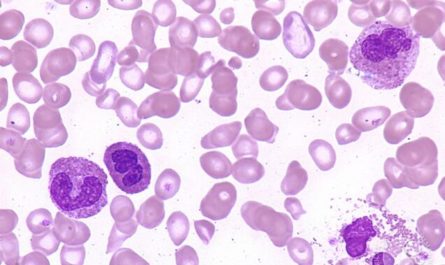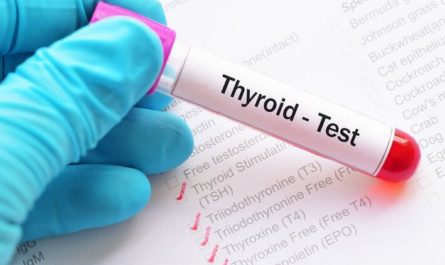Constipation is a common digestive issue. It can affect up to 1 in 3 American adults, with women and older adults at greatest risk. While aging, certain medications, and digestive disorders can contribute to constipation, your diet also plays a significant role. Consuming too many low-fiber, high-fat, or processed foods can slow down your digestion and lead to infrequent, hard, or painful bowel movements. If you struggle with constipation, avoiding or limiting these 16 foods may help get things moving again and prevent future blockages.

16 Foods That Can Cause Constipation
1. Dairy Products
Dairy products, such as milk, cheese, and ice cream, can be a major culprit when it comes to constipation. This is because they contain high amounts of fat and low amounts of fiber, which can slow down digestion and lead to hard, dry stools.
Additionally, some people may be lactose intolerant, meaning their bodies have difficulty digesting the sugar in milk, which can also contribute to constipation.
Dairy products also contain casein, a protein that can be difficult for some people to digest. When casein is not properly digested, it can lead to inflammation in the gut and contribute to constipation.
Tip: If you love dairy, opt for low-fat or non-fat options, and pair them with high-fiber foods to keep things moving. You can also try lactose-free or plant-based alternatives, such as almond milk or coconut yogurt.
2. Red Meat
Red meat, such as beef, pork, and lamb, is another common cause of constipation. Like dairy, it’s high in fat and low in fiber, which can slow down digestion. Red meat also contains high amounts of iron.
Moreover, red meat is often high in saturated fat, which can increase inflammation in the body and contribute to digestive issues like constipation.
When red meat is not properly digested, it can also lead to the formation of harmful compounds in the gut, such as heterocyclic amines and polycyclic aromatic hydrocarbons, which have been linked to an increased risk of colorectal cancer.
Tip: If you eat red meat, choose leaner cuts and pair them with plenty of fruits, vegetables, and whole grains to add fiber to your diet. You can also try incorporating more plant-based protein sources, such as beans, lentils, and tofu, which are high in fiber and easier to digest.
3. Processed Foods
Processed foods, such as chips, crackers, and cookies, are often high in fat and low in fiber, which can contribute to constipation. They also tend to be high in salt, which can cause water retention and make stools harder and more difficult to pass.
In addition to being low in fiber, processed foods are often high in refined carbohydrates, which can disrupt the balance of gut bacteria and lead to digestive issues like constipation.
Processed foods may also contain artificial additives and preservatives that can irritate the gut and contribute to inflammation.
Tip: Instead of processed snacks, reach for fresh fruits, vegetables, and whole grains, which are high in fiber and nutrients. You can also try making your own snacks at home using whole-food ingredients, such as homemade trail mix or vegetable chips. This can help to avoid the added sugars and preservatives found in many processed foods.
4. Fried Foods
Fried foods, such as french fries, fried chicken, and doughnuts, are high in fat and low in fiber, which can slow down digestion and cause constipation. They’re also often high in salt, which can contribute to water retention and make stools harder.
Fried foods are also often cooked in unhealthy oils, such as partially hydrogenated vegetable oils, which can increase inflammation in the body and contribute to digestive issues like constipation. When foods are fried at high temperatures, they can also form harmful compounds like acrylamide.
Tip: If you enjoy fried foods, try to limit your intake and pair them with high-fiber options, such as a side salad or fresh fruit. You can also try healthier cooking methods, such as baking, grilling, or roasting, which use less oil and are less likely to form harmful compounds.
5. Refined Grains
Refined grains, such as white bread, white rice, and pastries, have had most of their fiber removed during processing. This means they’re less likely to promote regular bowel movements and can contribute to constipation.
Refined grains are also often high in added sugars and low in essential nutrients like vitamins and minerals. When consumed in excess, refined grains can lead to rapid spikes in blood sugar and insulin levels.
Tip: Choose whole grain options instead, such as whole wheat bread, brown rice, and whole grain pasta, which are higher in fiber and nutrients. You can also try incorporating more ancient grains, such as quinoa, millet, and amaranth, which are naturally gluten-free and rich in fiber and protein.

6. Bananas
While bananas are often touted as a constipation remedy, they can actually cause constipation in some people. This is because they’re high in starch and low in fiber, especially when they’re not fully ripe.
Bananas also contain tannins, which are compounds that can reduce the absorption of certain nutrients and contribute to constipation. When bananas are not fully ripe, they also contain higher levels of resistant starch. This can be difficult for some people to digest and may lead to constipation.
Tip: If you find that bananas constipate you, try eating them when they’re fully ripe, or opt for other high-fiber fruits, such as berries, apples, and pears. You can also try pairing bananas with other high-fiber foods, such as chia seeds or flaxseeds, to help promote regularity.
7. Chocolate
Chocolate, especially dark chocolate, can be constipating for some people. This is because it contains high amounts of fat and low amounts of fiber, which can slow down digestion.
Chocolate also contains caffeine and theobromine, which are stimulants that can have a dehydrating effect on the body and contribute to constipation. Additionally, some people may be sensitive to the dairy, soy, or other ingredients found in chocolate.
Tip: If you love chocolate, opt for varieties with a higher percentage of cocoa, which contains more fiber, and pair it with other high-fiber foods. You can also try dark chocolate made with alternative sweeteners, such as stevia or erythritol, which are less likely to cause digestive issues.
8. Caffeine
While caffeine can stimulate the digestive system and promote bowel movements in some people, it can also have the opposite effect. Caffeine is a diuretic, meaning it can cause dehydration.
Caffeine can also stimulate the production of stomach acid, which can irritate the lining of the digestive tract and contribute to inflammation and constipation.
Additionally, some people may be sensitive to caffeine and experience digestive issues like constipation as a result.
Tip: If you find that caffeine constipates you, try limiting your intake or switching to decaffeinated options. Make sure to drink plenty of water throughout the day to stay hydrated. You can also try herbal teas, such as peppermint or ginger tea, which can help soothe the digestive system and promote regularity.
9. Alcohol
Like caffeine, alcohol is a diuretic and can cause dehydration, which can contribute to constipation. It can also slow down digestion and lead to hard, dry stools.
Alcohol can also irritate the lining of the digestive tract and contribute to inflammation and constipation. When alcohol is consumed in excess, it can also disrupt the balance of gut bacteria and lead to digestive issues like constipation.
Tip: If you drink alcohol, do so in moderation and make sure to drink plenty of water to stay hydrated. You can also try pairing alcoholic beverages with high-fiber snacks, such as fresh fruit or vegetables. If you experience chronic constipation or other digestive issues, it may be best to avoid alcohol altogether.
10. Unripe Fruits
While fruits are generally high in fiber and can promote regular bowel movements, unripe fruits can have the opposite effect. This is because they’re higher in starch and lower in fiber than ripe fruits. This can slow down digestion and cause constipation.
Unripe fruits also contain higher levels of tannins and other compounds that can reduce the absorption of certain nutrients and contribute to constipation.
Additionally, some people may be sensitive to the natural sugars found in fruits, such as fructose, which can lead to digestive issues like constipation when consumed in excess.
Tip: Choose ripe fruits whenever possible to maximize their fiber content and promote regularity. If you find that certain fruits constipate you, try pairing them with other high-fiber foods, such as nuts or seeds, to help balance out their effects. You can also try cooking or pureeing fruits to make them easier to digest.
11. Eggs
Eggs are a low-fiber food that can contribute to constipation when consumed in large quantities as part of a low-fiber diet. Additionally, egg allergies are common and can cause chronic constipation for some people.
Eggs are also high in choline, a nutrient that can be difficult for some people to digest and may contribute to constipation. When eggs are not properly digested, they can also lead to the formation of harmful compounds in the gut, such as hydrogen sulfide. This can irritate the lining of the digestive tract and contribute to inflammation.
Tip: If you eat eggs regularly, make sure to pair them with high-fiber foods like vegetables to keep your digestive system running smoothly. If you suspect an egg allergy, talk to your doctor about allergy testing. You can also try incorporating other protein sources, such as lean meats or plant-based options, to help reduce your reliance on eggs.
12. Chewing Gum
While chewing gum itself doesn’t cause constipation, swallowing large amounts of gum can create a mass that blocks the digestive tract and leads to constipation.
Chewing gum can also stimulate the production of stomach acid, which can irritate the lining of the digestive tract and contribute to inflammation and constipation.
Additionally, some people may be sensitive to the artificial sweeteners or other ingredients found in chewing gum.This can lead to digestive issues like constipation.
Tip: Limit your gum chewing to one or two pieces per day, and avoid swallowing it. Children under 5 shouldn’t chew gum at all. If you experience chronic constipation or other digestive issues, it may be best to avoid chewing gum altogether.
13. Salty Snacks
Foods high in salt, like chips, fries, processed meats, and frozen dinners, can worsen dehydration and contribute to constipation.
Salt can also disrupt the balance of electrolytes in the body, which can lead to water retention and make stools harder and more difficult to pass. Additionally, many salty snacks are also high in fat and low in fiber, which can slow down digestion and contribute to constipation.
Tip: Opt for low-sodium alternatives and make sure to drink plenty of water to counteract the dehydrating effects of salty foods. You can also try making your own snacks at home using whole food ingredients, such as air-popped popcorn or roasted chickpeas.
14. Garlic and Onions
For people with irritable bowel syndrome (IBS), garlic, onions, and other foods high in FODMAPs can be difficult to digest.
FODMAPs are short-chain carbohydrates that are poorly absorbed in the small intestine and can lead to digestive issues like bloating, gas, and constipation.
When FODMAPs reach the large intestine, they are fermented by gut bacteria, which can lead to an overgrowth of harmful bacteria and contribute to inflammation and constipation.
Tip: If you have IBS, talk to your doctor or a registered dietitian about following a low-FODMAP diet to manage your symptoms. You can also try incorporating other flavorful herbs and spices, such as basil, thyme, or cumin, which are low in FODMAPs and less likely to cause digestive issues.
15. Legumes
Like garlic and onions, legumes such as beans, chickpeas, and lentils can be high in FODMAPs and difficult for some people to digest, potentially leading to constipation.
Legumes are also high in fiber, which can be beneficial for promoting regularity but may also lead to constipation if consumed in excess or without adequate hydration.
Additionally, some people may be sensitive to the natural sugars found in legumes, such as raffinose and stachyose. This can lead to digestive issues like constipation.
Tip: If you find that legumes constipate you, try soaking and cooking them thoroughly to make them easier to digest, or opt for lower-FODMAP alternatives like tofu or tempeh. You can also try incorporating legumes gradually into your diet and pairing them with other high-fiber foods, such as vegetables or whole grains.
16. Supplements
Some supplements, particularly iron and calcium, can cause constipation as a side effect. While these nutrients are important for overall health, getting them from supplements rather than a balanced diet may increase the risk of digestive issues.
Iron supplements can be particularly constipating because they can interfere with the absorption of other nutrients and lead to the formation of hard, dry stools. Calcium supplements can also bind to other nutrients in the digestive tract and contribute to constipation.
Tip: If you take iron or calcium supplements, make sure to also include plenty of fiber-rich foods in your diet to help prevent constipation.
If you experience chronic constipation or other digestive issues while taking supplements, it may be best to discontinue use and consult with your healthcare provider.
When to See a Doctor?
While occasional constipation is common and usually resolves with self-care measures, chronic constipation can be a sign of an underlying health problem. See your doctor if you experience any of the following:
- Constipation that lasts longer than 3 weeks despite self-care measures
- Severe abdominal pain or cramping
- Blood in your stool
- Unexplained weight loss
- Sudden changes in bowel habits that persist
- Constipation that alternates with diarrhea
Your doctor can help identify any underlying causes of your constipation and recommend appropriate treatment options. In some cases, prescription medications, biofeedback therapy, or surgery may be necessary to manage chronic constipation.






